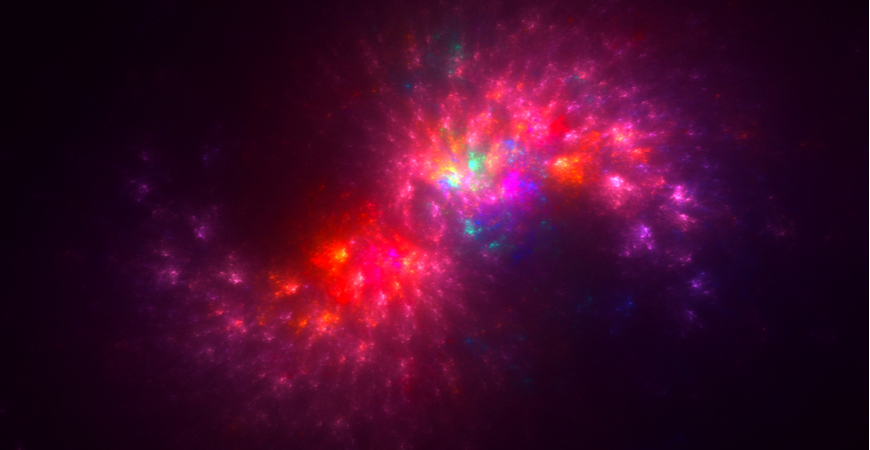
FRACTIONAL DISTILLATION:
On Psychoanalysis’s (Mis)Formulation of Autism
The neurodiversity paradigm, the outcome of years of grassroots activism, attempts to reframe neurological and neuropsychological differences in ways that honor the experiences, strengths, and cultures of neurodivergent individuals. This reframe stands in contrast to the pathology paradigm of nosological systems like the DSM-V, and has significant implications for treating neurodivergent individuals. If the pathology paradigm focuses on “curing” — or, at least “managing” — neurodevelopmental conditions, the neurodiversity-affirming paradigm emphasizes a more humanistic, patient-led, ethical approach to working with populations often siloed to specialists and typically excluded from psychoanalysis. How can therapists work with autistic people, individuals with ADHD, and other neurodivergent communities in affirming ways? What is the potential for psychodynamic work with neurodivergent individuals? What biases persist and how can they lead to harmful formulations and interventions? This course will explore these and related questions, striving to introduce participants to neurodiversity-affirming work, to reckon with psychoanalysis’s history with respect to autism, and to dream together about the possibilities of analytic work in this area.
NCSPP is aware that historically psychoanalysis has either excluded or pathologized groups outside of the dominant population in terms of age, race, ethnicity, nationality, language, gender, religion, sexual orientation, socioeconomic status, disability, and size. As an organization, we are committed to bringing awareness to matters of anti-oppression, inequity, inequality, diversity, and inclusion as they pertain to our educational offerings, our theoretical orientation, our community, and the broader world we all inhabit.
Presenters Response:
This course works to address historical and contemporary psychoanalytic formulations of autistic functioning and experience and contrast these with narratives, community-led research, and autobiographical / auto-ethnographic accounts from autistic individuals. In doing so, I hope to address a history of excluding autistic voices from professional formulations of autism and critique one reason this happens - the assumption in psychoanalysis that autism is without subjectivity and, therefore, without capacity for relationship and symbolization. The course will also incorporate tools from gay and queer theorists (e.g. Foucault, Butler) to address the cissexism and heteronormativity that present in psychoanalytic theories of autism. Lastly, participants will read accounts of lived experience within the intersection of autism and race.
At the end of this course participants will be able to:
- Identify and discern language norms and trends in neurodivergent communities (specifically neurotypical / neurodivergent, person-first language, SPINS/stimming) contrast these with clinical terms emphasized in their training, and engage in conversations with patients about preferred language.
- Describe how constructing autism as pathology influences subsequent approaches to treatment.
- List 2 or more emerging clinical and research considerations introduced by neurodivergent communities, and apply these in clinical practice (self-diagnosis, masking, burnout, e.g.).
- Describe specific instances of neuronormative bias / ableism in psychoanalytic theory and practice.
- Benvenuto, S. (2019). Autism: A Battle lost by psychoanalysis. Division Review. 19, 26-32.
- Brenner, S. (2020). The autistic subject: On the threshold of language. Palgrave MacMillan.
- Hull L., Mandy W., Lai MC., Baron-Cohen S., Allison C., Smith P., Petrides K. V. (2019). Development and Validation of the Camouflaging Autistic Traits Questionnaire (CAT-Q). Journal of Autism and Developmental Disorders. 49(3), 819-833.
- Kenny D. T. (2019). Faulty Theory, Failed Therapy: Frances Tustin, Infant and Child Psychoanalysis, and the Treatment of Autism Spectrum Disorders. SAGE Open. https://doi.org/10.1177%2F2158244019832686
- Morsa, B. (under contract) Fractional distillation: On psychonalysis’ (mis)formulation of autistic children. In M. O’Loughlin, L. Rothschild, C. Owens (Eds.), Childhood predicaments: Precarity, desire, loss, liminality, (im)possibility. Lexington Books.
- Tustin, F. (1992) Autistic States in Children. Routledge. (2021)
- Wilkenfeld D.A., & McCarthy A.M (2020). Ethical Concerns with Applied Behavior Analysis for Autism Spectrum "Disorder". Kennedy Institute of Ethics Journal, 30(1), 31-69. https://doi.org/10.1353/ken.2020.0000
- Yergeau, M. (2018). Authoring autism: On rhetoric and neurological queerness. Duke University Press.
Benjamin Morsa, Psy.D., is the founder of Tide Pools, a group practice and training program for Psy.D. students, which offers psychoanalytic therapy and assessment. His interests include psychoeducational assessment with bilingual children, queer and transgender theory and experience, neuro-affirming approaches to assessment and psychoanalysis, constructions of masculinity, and critical autism studies.
The target audience includes individuals open to a critical exploration of some of psychoanalysis' central theorists. Participants should also be open to reflecting on their training and personal practice in non-defensive ways, particularly with respect to neuronormative bias. Any level of participant is welcome, so long as the individual is open to reading both psychoanalytic theoretical papers of some rigor AND narrative / critical inquiry from outside the psychoanalytic mainstream.
LCSW/MFTs: Course meets the requirements for 10.5 hours of continuing education credit for LMFTs, LCSWs, LPCCs and/or LEPS, as required by the CA Board of Behavioral Sciences. NCSPP is approved by the California Association of Marriage and Family Therapists (Provider Number 57020), to sponsor continuing education for LMFTs, LCSWs, LPCCS, and/or LEPs. NCSPP maintains responsibility for this program /course and its content.
Psychologists: Division 39 is approved by the American Psychological Association to sponsor continuing education for psychologists. Division 39 maintains responsibility for these programs and their content.
Enrollees who cancel at least SEVEN DAYS prior to the event date will receive a refund minus a $35 administrative charge. No refunds will be allowed after this time. Transfer of registrations are not allowed.
For program related questions contact Clara Brandt, Psy.D., 415-685-0488 or cbrandt@ncspp.org.
For questions related to enrollment, locations, CE credit, special needs, course availability and other administrative issues contact Michele McGuinness by email or 415-496-9949.
Education Committee
The Education Committee is responsible for the development of a variety of courses and workshops given throughout the year in San Francisco and the East Bay.

